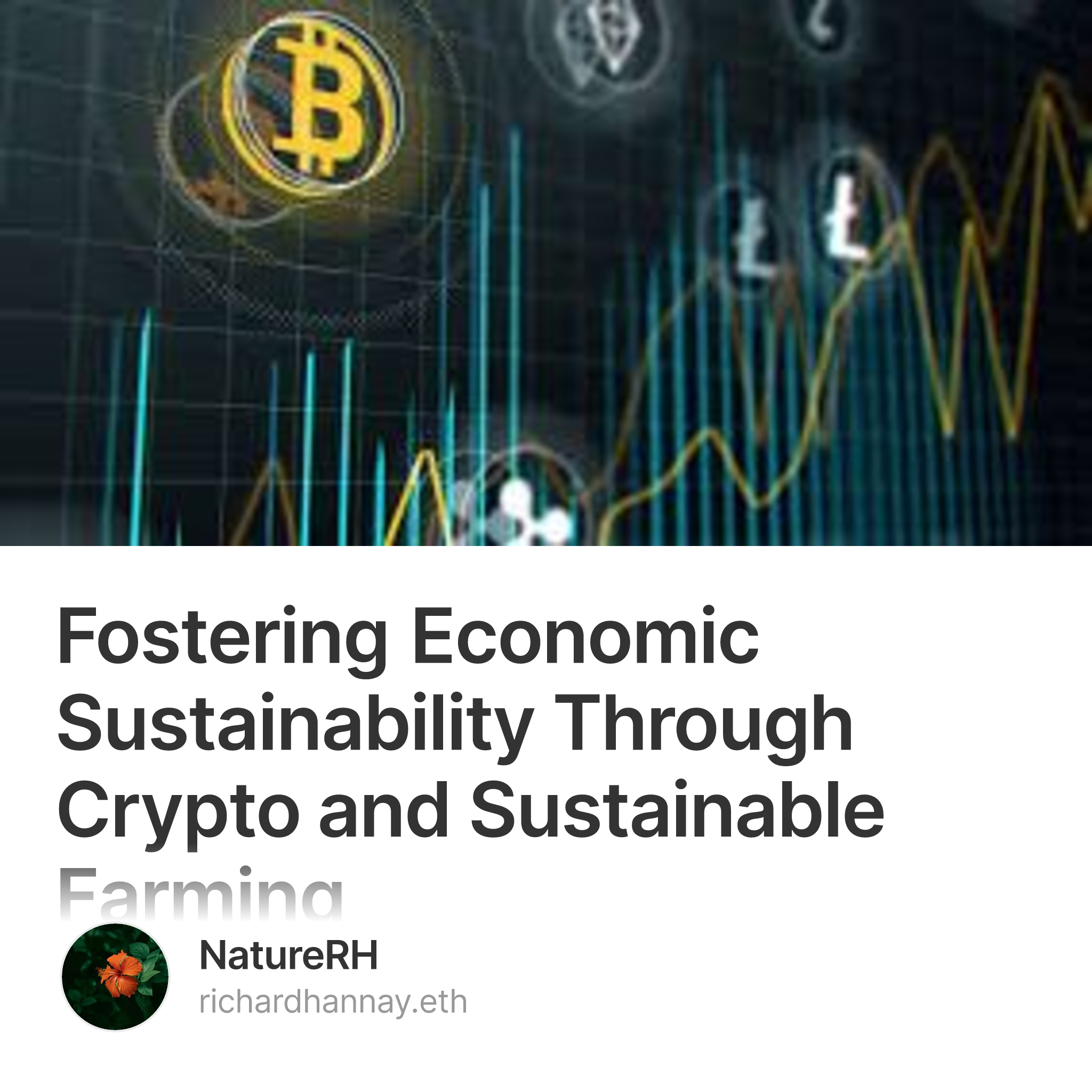In recent years, the intersection of economics, cryptocurrency, and sustainable farming has emerged as a promising avenue for fostering economic sustainability while promoting environmental stewardship. This article explores the synergies between these domains and their potential to drive positive change in the global economy.
The Rise of Cryptocurrency:
Cryptocurrency, epitomized by Bitcoin and Ethereum, has revolutionized traditional financial systems by offering decentralized, secure, and transparent alternatives to traditional banking. Beyond financial transactions, blockchain technology—the backbone of cryptocurrencies—has vast applications across various sectors, including agriculture and sustainability.
The Promise of Sustainable Farming:
Amid growing concerns about climate change and food security, sustainable farming practices have gained traction worldwide. Sustainable farming focuses on maximizing productivity while minimizing environmental impact, encompassing techniques such as organic farming, permaculture, and agroforestry. These practices prioritize soil health, biodiversity, and water conservation, ensuring the long-term viability of agricultural systems.
Economic Empowerment through Crypto and Sustainable Farming:
The marriage of cryptocurrency and sustainable farming presents a compelling opportunity to empower farmers, enhance economic resilience, and promote environmental sustainability. Here's how:
-
Decentralized Finance (DeFi) for Farmers: Cryptocurrency-based decentralized finance platforms offer farmers access to financial services, including loans, insurance, and investment opportunities, without relying on traditional banking institutions. DeFi protocols enable farmers to collateralize their assets, such as land or crops, to secure loans for agricultural inputs, equipment upgrades, or diversification into sustainable practices.
-
Tokenization of Agricultural Assets: Blockchain technology facilitates the tokenization of agricultural assets, allowing fractional ownership and trade of farmland, crops, or carbon credits. Tokenization democratizes access to agricultural investments, enabling small-scale farmers to raise capital, while investors gain exposure to sustainable farming initiatives. Additionally, tokenization enhances transparency and traceability across the agricultural supply chain, fostering trust among consumers and reducing food fraud.
-
Smart Contracts for Fair Trade and Supply Chain Transparency: Smart contracts, self-executing agreements powered by blockchain, can revolutionize fair trade practices in agriculture. By automating transactions and enforcing predefined conditions, smart contracts ensure fair compensation for farmers, transparent pricing, and traceability of agricultural products from farm to fork. This fosters trust and accountability in supply chains, empowering consumers to make ethical purchasing decisions.
-
Carbon Credits and Climate-Positive Farming: Cryptocurrency initiatives focused on carbon offsetting and climate-positive farming incentivize sustainable agricultural practices. Farmers who adopt regenerative farming methods, sequestering carbon in soils and reducing greenhouse gas emissions, can earn carbon credits through blockchain-based platforms. These credits can be traded on carbon markets or used to offset carbon footprints, driving financial rewards for environmental stewardship.
Conclusion:
The convergence of cryptocurrency and sustainable farming holds immense potential to catalyze economic sustainability while advancing environmental conservation efforts. By leveraging blockchain technology, decentralized finance, and innovative agricultural practices, we can create a more equitable, resilient, and environmentally conscious global economy. As stakeholders across sectors collaborate to harness these synergies, we move closer to a future where economic prosperity and environmental well-being are harmoniously intertwined.

